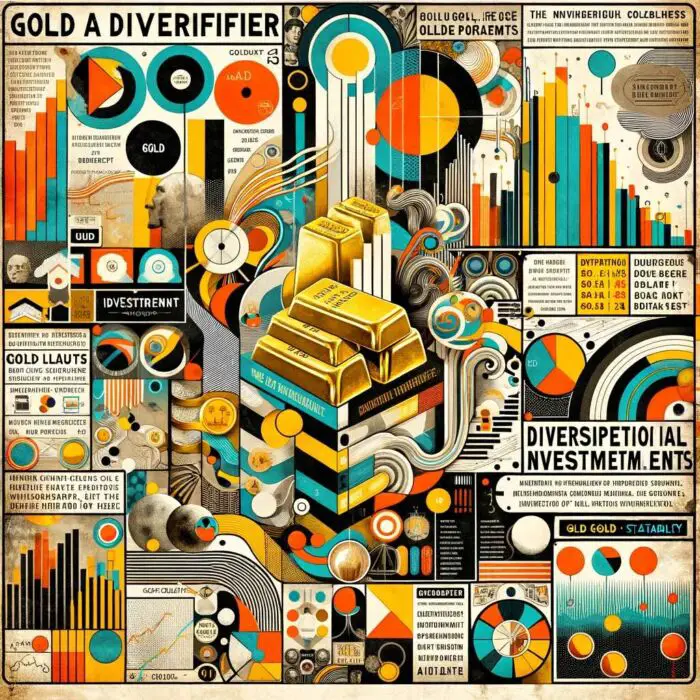Warren Buffett, lovingly referred to as the “Oracle of Omaha,” is an internationally renowned businessman and philanthropist, who has achieved an almost legendary status among the global investment community. Born on August 30, 1930, in Omaha, Nebraska, Buffett demonstrated an affinity for numbers and business at a very early age. This nascent talent blossomed into what would become one of the most successful investment careers in the history of finance.
Buffett is best known as the chairman and CEO of Berkshire Hathaway, a multinational conglomerate holding company. Over the years, his innate ability to discern the inherent value in a wide array of businesses, coupled with his no-nonsense Midwestern charm, has enabled him to amass an extraordinary fortune, making him one of the richest individuals on the planet. However, despite his vast wealth, Buffett is renowned for his frugality and adherence to a simple, down-to-earth lifestyle, a testament to his deeply ingrained values.

Overview of Buffett’s Investment Philosophy
Warren Buffett’s investment philosophy is underpinned by a steadfast belief in value investing, a concept he learned from Benjamin Graham, his mentor at Columbia Business School. He embodies the principle that investing should not be dictated by trends, emotions or market sentiments, but rather by rigorous analysis and sound judgment.
Buffett is famous for his phrase, “Buy a stock as you would buy a house. Understand and like it such that you’d be content to own it in the absence of any market.” This quote encapsulates his long-term investment approach. He doesn’t treat stocks as mere ticker symbols to be traded on a whim, but as fractions of real businesses that have underlying value. It is this fundamental belief that allows him to weather short-term market volatility and keep his gaze firmly fixed on long-term growth.

At the heart of Buffett’s philosophy is his preference for companies with “economic moats,” a term he uses to describe businesses that have sustainable competitive advantages. These might include a powerful brand, cost advantages, network effects, or high barriers to entry. Such businesses can generate consistent profits over the long term, providing the compounding returns that are key to Buffett’s investing strategy.
Moreover, Buffett espouses the importance of investing within one’s “circle of competence.” This means investing in businesses that you thoroughly understand and can reasonably predict how they’ll fare in the future. By sticking to industries and businesses he comprehends, Buffett mitigates risk and improves his chances of investment success.
Buffett also follows the principle of ‘margin of safety.’ He endeavors to purchase securities for less than they’re worth, thereby minimizing downside risk. By buying stocks at a price below their intrinsic value, he gives himself a safety net in case his analysis of the company’s worth proves to be off the mark.
But while Buffett’s philosophy is firmly grounded in logic and analysis, there is also an element of human understanding and empathy in his approach. He values strong, ethical leadership and often invests in companies not just for their financials, but for the people who run them. Buffett places a high emphasis on integrity and believes that an honest and competent management team can be a company’s greatest asset.
Buffett’s investment philosophy, often seen as a blend of sophistication and simplicity, is laced with his wry humor and sage wisdom. His annual letters to Berkshire Hathaway shareholders, eagerly anticipated events in the financial calendar, are a testament to his investment acumen, wit, and timeless wisdom. Despite the complexity of the financial world, Buffett’s philosophy is a reminder that the fundamentals of good investing remain strikingly simple: buy quality businesses, at a reasonable price, and hold them for the long term.

Understanding Gold as an Investment
Gold. Just the word can inspire a certain sense of awe. It’s a precious metal that has fascinated humanity since the dawn of civilization, embodying wealth, power, and the divine. Its brilliant luster and scarcity have made it a universal symbol of value, transcending cultural boundaries and the sands of time. But gold is more than just a bright and shiny metal; it’s also a unique asset class that plays a distinctive role in an investment portfolio.

The Historical Appeal of Gold
The appeal of gold reaches back thousands of years. Ancient civilizations like the Egyptians, Romans, and Incas revered gold for its beauty and used it in religious rituals. But gold also served a more practical purpose. As societies grew more complex, gold became a form of money due to its rarity, durability, divisibility, and ease of recognition.
In more modern times, gold played a pivotal role in shaping the global financial system. It underpinned the Gold Standard, a monetary system where currencies were directly convertible to gold, used by various countries from the late 19th century until the mid-20th century.
Today, even though our economies have moved away from the Gold Standard, gold continues to captivate. Central banks around the world keep substantial reserves of gold. Investors turn to it in times of economic uncertainty, and consumers across cultures still adorn themselves with it as a signal of wealth and prosperity.

The Pros and Cons of Investing in Gold
Like any investment, gold comes with its own set of pros and cons, and understanding these can help an investor determine whether it makes sense as part of their portfolio.
Let’s start with the benefits:
- Hedge Against Inflation: Gold is often seen as a store of value. When inflation eats into the purchasing power of paper currencies, gold tends to hold its value. Its scarcity relative to printed money gives it this resilience.
- Safe Haven: During periods of market volatility and economic uncertainty, investors flock to gold as a “safe haven.” It’s perceived as a more stable asset that can help protect wealth during market downturns.
- Diversification: Gold often has a low correlation with other asset classes, such as stocks and bonds. This makes it a useful tool for diversification, potentially reducing portfolio risk.
However, investing in gold is not without its drawbacks:
- No Passive Income: Unlike stocks and bonds, gold does not produce dividends or interest. Any potential gains come solely from price appreciation.
- Storage Costs: If you opt to hold physical gold, you need a safe place to store it. This can lead to additional costs, including insurance.
- Price Volatility: While gold can be a safe haven during times of market stress, its price can also be quite volatile. It’s heavily influenced by macroeconomic factors, including interest rates and geopolitical events.
- Lack of Industrial Use: Unlike other precious metals such as silver or platinum, gold’s industrial applications are limited. Much of its value is based on demand for jewelry and investment purposes.
In essence, investing in gold can be seen as an intriguing dance, a careful minuet between its historical allure and its modern economic implications. Like any dance, the beauty is in the balance, the understanding of the rhythm and movement, the pros and cons that characterize this timeless asset. So, for the discerning investor, while the glint of gold can indeed be tempting, it is critical to appreciate its nuances before stepping onto the investment dance floor.
source: Investor Talk on YouTube

Warren Buffett’s View on Gold
Warren Buffett, despite his legendary status and ability to pick value-creating investments, has always maintained a rather distinctive, not to say controversial, view on gold as an investment. It’s worth noting that, to understand Buffett’s perspective on gold, one must delve not only into his public statements but also into the bedrock of his investment philosophy.
Public Statements on Gold
Buffett’s stance on gold has been a consistent thread running through his interviews and annual letters to shareholders. His skepticism towards gold as an investment is encapsulated in his 2011 letter to Berkshire Hathaway shareholders. He wrote: “Gold gets dug out of the ground in Africa or someplace. Then we melt it down, dig another hole, bury it again and pay people to stand around guarding it. It has no utility. Anyone watching from Mars would be scratching their head.”
In essence, Buffett views gold as an unproductive asset, one that doesn’t earn income or produce anything useful. He humorously contrasts this with the likes of farmland or companies, which are capable of generating consistent profits over time.

Comparison of Gold to Productive Assets
Buffett, in his investment philosophy, has always leaned towards businesses that provide a good or service, generate consistent profits, and, importantly, have the potential to grow those profits in the future. He sees these productive assets as the true wealth creators.
In contrast, he has been vocally critical of gold because it doesn’t meet these criteria. Gold, as per Buffett’s argument, doesn’t produce anything. It doesn’t innovate, sell products or services, pay dividends, or grow its earnings. Its value is essentially contingent upon the belief that someone else will pay more for it in the future – a belief Buffett refers to as the “greater fool theory.
This isn’t to suggest that Buffett completely denies gold’s role as a potential hedge against certain economic conditions or its value in specific cultural contexts. Still, it’s clear that for him, the steady, compounding returns of productive assets like businesses are a more attractive, reliable path to growing wealth.
Moreover, it’s not just about the numbers for Buffett. It’s about the narrative. There’s a certain romance in his approach to investing, a love for the stories of businesses and their role in human progress. Companies create products, provide jobs, innovate, and push society forward. In Buffett’s eyes, they’re the engines of civilization, an idea that an inert block of gold can’t quite compete with.
In essence, Warren Buffett’s views on gold are as much a reflection of his investing principles as they are a commentary on the metal itself. His skepticism towards gold underscores his unwavering belief in the intrinsic power of businesses to create, innovate, and, ultimately, generate long-term value. For the Oracle of Omaha, the glitter of gold is simply no match for the enduring allure of productive assets.

The Reasoning Behind Warren Buffett’s Stance On Gold
Warren Buffett’s skepticism about gold as an investment is rooted in a set of well-defined principles and logical deductions that have guided his investment career. His views extend beyond mere personal bias and offer valuable insights into the dynamics of investing.
Gold’s Lack of Productivity
One of Buffett’s most significant objections to gold is its lack of productivity. He often compares gold to a farm, explaining that while gold remains static and doesn’t produce anything, a farm can grow crops year after year, generating income and rising in value. Gold simply sits there, not participating in the growth of the economy, not creating jobs or developing products, and not generating earnings or paying dividends. Buffett believes in the power of compounding, and an asset that doesn’t produce anything can’t compound.
The Opportunity Cost of Gold
Buffett’s reservation about gold also relates to the concept of opportunity cost, which is the potential return an investor misses out on when choosing one alternative over another. When you invest in gold, you’re not just spending money; you’re also foregoing the potential returns you could have earned by investing that money elsewhere, for example, in productive assets like stocks or real estate.
Opportunity cost is particularly significant given the long-term historical performance of stocks versus gold. While gold has provided decent returns in certain periods, particularly during times of economic stress, over the long haul, the stock market has outperformed gold by a wide margin. So, for an investor with a long-term perspective like Buffett, the opportunity cost of holding gold can be substantial.

Contrast with Value Investing Principles
Finally, Buffett’s view on gold stands in stark contrast to his value investing principles. Buffett learned from his mentor Benjamin Graham that “an investment operation is one which, upon thorough analysis, promises safety of principal and a satisfactory return.” Gold, by its very nature, doesn’t fit this definition.
Since gold doesn’t have cash flows, traditional valuation metrics can’t be applied to it. Its value is largely based on supply and demand dynamics, which can be influenced by a variety of factors, including macroeconomic indicators, geopolitical events, and market sentiment. This makes predicting its future price particularly challenging.
Moreover, unlike a business that can be analyzed based on its financials and its competitive position, there is no surefire way to determine the intrinsic value of gold. This contradicts Buffett’s principle of investing in assets that he can understand and value.
To use a colorful metaphor, if the world of investing was a grand buffet, gold, to Warren Buffett, would be like a dish that, while appealing to many, doesn’t satisfy his palate. Its lack of productivity, the opportunity costs, and its contrast to his value investing principles, all make it a course he’s happy to skip. Instead, he fills his plate with the more flavorful and nourishing offerings of businesses – the productive assets that satiate his investor’s appetite and fuel his compounding wealth machine.
source: 2 is 1 on YouTube

Warren Buffett’s Preference for Other Investments
Like a seasoned chef who knows precisely which ingredients will concoct the most delectable dish, Warren Buffett has developed an eye for investments that align well with his financial philosophy. Gold may not pass his taste test, but several other asset classes often find favor in the Oracle of Omaha’s recipe for financial success.
Overview of Buffett’s Favored Investments
Buffett’s investment preferences are generally concentrated in three areas: stocks, bonds, and real estate. The common denominator in these investments is their capacity to generate income, appreciate over time, and compound wealth.
Buffett is particularly attracted to equities, especially those of high-quality companies that have robust business models, sustainable competitive advantages, strong management teams, and are available at prices below their intrinsic value. His holding company, Berkshire Hathaway, has a portfolio replete with such businesses, from insurance and utilities to railroads and consumer goods.
Bonds and real estate also make the cut, though to a lesser extent. Bonds, particularly U.S. Treasury bonds, provide fixed income and serve as a hedge against market volatility. Real estate, on the other hand, provides a tangible asset that can generate rental income and appreciate in value over time.

A Closer Look at Stocks, Bonds, and Real Estate
When it comes to stocks, Buffett is a long-term investor who buys shares in companies he believes have excellent prospects for the future. He famously stated that his favorite holding period is “forever,” emphasizing his commitment to sustainable business performance rather than short-term market fluctuations. Companies like Coca-Cola, American Express, and Apple are mainstays in Berkshire Hathaway’s portfolio, reflecting this approach.
Bonds in Buffett’s portfolio act as a counterbalance to equities. They offer consistent, albeit lower, returns and reduce portfolio volatility. However, Buffett is selective with bonds and leans towards those issued by the U.S. government or highly creditworthy corporations.
Real estate, although not the primary focus of Buffett’s strategy, fits into his investment paradigm. It can produce rental income and appreciate over time, making it a viable wealth-generating asset. Buffett understands real estate’s value well, as demonstrated by his investment in commercial real estate through Berkshire Hathaway’s subsidiary, Berkshire Hathaway HomeServices.

The Role of Cash in Buffett’s Portfolio
In addition to these investments, cash also plays a crucial role in Buffett’s strategy. At first blush, this might seem contradictory to his focus on productive assets. However, Buffett views cash not merely as an idle asset but as an opportunity fund.
Holding substantial cash reserves allows Buffett to act swiftly and decisively when investment opportunities arise. It’s akin to a financial war chest he can delve into during market downturns when fear drives prices below intrinsic values. As Buffett quipped during the 2008 financial crisis, “Cash, though, is to a business as oxygen is to an individual: never thought about when it is present, the only thing in mind when it is absent.”
In a nutshell, Warren Buffett’s preferred investment menu includes hearty servings of stocks, a side of bonds and real estate, and a substantial dollop of cash for good measure. While gold’s gleam doesn’t make it to his plate, these other ingredients mix well to create a wealth-building feast, catered perfectly to his investment palate.
source: Finance Fix on YouTube

Counterarguments and Exceptions For Investing In Gold
Like any grand narrative, the story of Warren Buffett’s aversion to gold isn’t without its intriguing plot twists and counterpoints. As the astute observer would note, Berkshire Hathaway’s investment history includes some dalliances with precious metals. Furthermore, despite Buffett’s skepticism, there remain compelling arguments for including gold in a well-diversified portfolio.
Instances Where Berkshire Hathaway Has Invested in Precious Metals
In a move that surprised many market watchers, Berkshire Hathaway took a stake in Barrick Gold Corporation in the second quarter of 2020. This move, seemingly a departure from Buffett’s oft-expressed distaste for gold, sparked speculation that the Oracle of Omaha was changing his tune.
However, it’s worth noting that the investment was in a gold mining company rather than the physical metal itself. Thus, it could be seen more as an endorsement of Barrick’s business fundamentals than a shift in Buffett’s view of gold. It’s also possible that the decision was made by one of Buffett’s investment managers rather than by Buffett himself. Berkshire subsequently divested its position in Barrick Gold in early 2021, making its stint in the gold industry rather brief.

Arguments in Favor of Gold as a Diversification Tool
Despite Buffett’s reservations, some investment professionals advocate for holding a portion of one’s portfolio in gold. They argue that it provides diversification benefits, can act as a hedge against inflation and currency devaluation, and can offer a safe haven during times of economic uncertainty or market turmoil.
Gold’s price movements often exhibit low or negative correlation with other asset classes, which can help reduce portfolio risk. It can also provide a layer of protection against inflation, as gold prices often rise when the cost of living increases.
Moreover, gold’s status as a universal store of value can be particularly advantageous during periods of heightened geopolitical risk or economic turbulence. When investors become fearful, they often flock to gold, pushing its price higher. While Buffett might argue that such behavior falls into the “greater fool theory,” others would say that it’s a rational response to uncertainty, underpinned by thousands of years of human history.
In conclusion, while the gold standard may not find favor in Warren Buffett’s golden rules of investing, it’s clear that the debate around gold as an investment is as multifaceted as the shiny metal itself. Whether it’s a surprise twist in Berkshire’s portfolio or a counterpoint from the broader investment community, these exceptions and counterarguments add a dash of intrigue to the tale, giving us yet another reason to keep a keen eye on the ever-evolving world of finance.
source: The Long-Term Investor on YouTube

Conclusion: Warren Buffett’s View on Gold
Just as the final brushstrokes on a masterpiece pull together the artist’s vision, so too does the conclusion in understanding Warren Buffett’s view on gold and its implications for individual investors.
As we’ve explored, the Oracle of Omaha’s stance on gold can be likened to a connoisseur’s disdain for an overhyped delicacy. Gold, despite its historical allure and status as a universal store of value, does not sit well with Buffett’s investing palate. His objections stem from gold’s lack of productivity, the opportunity cost of investing in it, and its fundamental misalignment with the principles of value investing. For Buffett, gold is a spectator in the financial arena, watching silently as the productive assets play the game and score the points.
Yet, this narrative is not without its exceptions and counterarguments. The brief foray of Berkshire Hathaway into a gold mining company and the rationale for including gold as a diversification tool in a well-balanced portfolio add depth and nuance to Buffett’s otherwise straightforward view.

Final Thoughts on Buffett’s Investment Philosophy and Its Implications for Individual Investors
Warren Buffett’s investment philosophy, with its emphasis on long-term value creation, serves as a guiding star for countless investors worldwide. His preference for businesses that produce goods, services, and income over time resonates with a simple yet powerful truth: wealth is built by participating in the growth and productivity of the economy.
The implications of Buffett’s views for individual investors can be summarized in three points:
First, focus on productive assets. Whether it’s stocks, bonds, real estate, or even a small business, look for investments that can grow, generate income, and compound over time.
Second, understand what you’re investing in. Buffett’s caution about gold comes in part from the difficulty of determining its intrinsic value. The lesson here is to invest in things you understand, where you can make reasonable judgments about their future value.
Lastly, always consider opportunity costs. Every dollar spent or invested is a dollar that can’t be used elsewhere. The decision to invest in one asset is a decision not to invest in another. Make sure the trade-off is worth it.
Buffett’s philosophy isn’t a blueprint, but more of a compass. It’s a set of principles that can guide you on your investment journey. And while that journey might not lead to a pot of gold, if Buffett’s remarkable success is any indication, it can lead to an even more valuable treasure: sustainable, long-term wealth.
Important Information
Investment Disclaimer: The content provided here is for informational purposes only and does not constitute financial, investment, tax or professional advice. Investments carry risks and are not guaranteed; errors in data may occur. Past performance, including backtest results, does not guarantee future outcomes. Please note that indexes are benchmarks and not directly investable. All examples are purely hypothetical. Do your own due diligence. You should conduct your own research and consult a professional advisor before making investment decisions.
“Picture Perfect Portfolios” does not endorse or guarantee the accuracy of the information in this post and is not responsible for any financial losses or damages incurred from relying on this information. Investing involves the risk of loss and is not suitable for all investors. When it comes to capital efficiency, using leverage (or leveraged products) in investing amplifies both potential gains and losses, making it possible to lose more than your initial investment. It involves higher risk and costs, including possible margin calls and interest expenses, which can adversely affect your financial condition. The views and opinions expressed in this post are solely those of the author and do not necessarily reflect the official policy or position of anyone else. You can read my complete disclaimer here.






